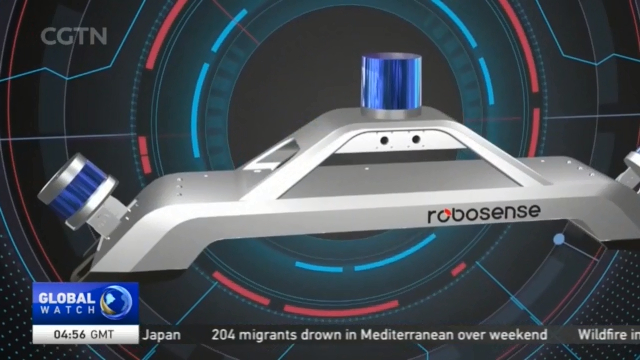
13:36, 02-Jul-2018
AI Development: China looking for talent to further boost AI industry
Updated
12:47, 05-Jul-2018
03:57

China's artificial intelligence industry is booming faster than ever, but the shortage of AI researchers and engineers may slow the pace. How urgent is the problem? Our reporter Ge Yunfei went to Shenzhen -- also known as China's Silicon Valley -- to find out.
The 2018 Global Artificial Intelligence & Robotics Summit just concluded on Sunday in China's southern tech hub city Shenzhen.
World-leading experts and a large audience are evidence of China's explosive growth in its AI industry. In fact, China is catching up fast despite the shortage of research work in the sector.
ERIC CHANG SENIOR DIRECTOR, MICROSOFT RESEARCH ASIA "Traditionally, there is more theoretical and fundamental research work in the US. I think that's gradually changing. Because I see more and more young professors in China are putting more effort in that area."
Young talent is helping China's AI industry to rise but if the country wants to take a step further, it needs to learn from the U.S.
ZHANG BO ACADEMICIAN, CHINESE ACADEMY OF SCIENCE "The reason why the U.S. is leading ahead is very simple. Talent! It's not the Americans, but the world's best talent who are attracted to the U.S. forging its lead."
Zhang Bo, China's top AI scientist, said the biggest gap between China and the U.S. is not the fundamental research but an international squad of researchers.
ZHANG BO ACADEMICIAN, CHINESE ACADEMY OF SCIENCE "In this era, it's impossible to achieve our goal by fighting alone. So our main task right now is to establish a free and open environment to attract global talent to China as soon as possible. Without it, all will be empty talk."
In autonomous driving, one of the core components is LiDar, a laser radar which can help the car see the surrounding environment.
A large chunk of the Lidar market belongs to VeloDyne, a U.S. company.
GE YUNFEI SHENZHEN "What happens to ZTE is like a wake-up call for China to develop its homegrown core technologies. It's not an easy job. But startups here in Shenzhen show the potential to realize that ambition."
Robosense, a startup founded in 2014 in Shenzhen, believes they can make a change.
QIU CHUNCHAO COO, ROBOSENSE "Our new generation of LiDar much more compact, stable and efficient than the traditional ones. It can lower the price of LiDar from thousands of dollars to some hundreds. More importantly, half of the chips inside the device are made by us."
Now Robosense also faces the problem of finding enough qualified AI researchers.
QIU CHUNXIN CEO, ROBOSENSE "Firstly, we train them on our own within the company. Secondly, we financed some colleges students with great potential for their further studies. So, they can directly work for us after graduate school."
RoboSense's solution may be suitable for some start-ups.
In fact, AI not only is about algorithms, big data but also cutting-edge hardware. Last year, there are about 300 thousand people working for China's computer chip industry, producing an output of around 540 billion yuan, or 82 billion dollars.
PROF. WEI SHAOJUN DEAN, DEPT. OF MICROELECTRONICS & NANOELECTRONICS TSINGHUA UNIVERSITY "According to my estimates, we need to at least double the number to 600-700 thousand employees by 2020. Meanwhile, Chinese universities can only provide 20-thousand graduates for the industry every year. You can see the huge gap!"
Experts say for the whole industry, a nationwide solution is in urgent demand. Ge Yunfei, CGTN, SHENZHEN.

SITEMAP
Copyright © 2018 CGTN. Beijing ICP prepared NO.16065310-3
Copyright © 2018 CGTN. Beijing ICP prepared NO.16065310-3